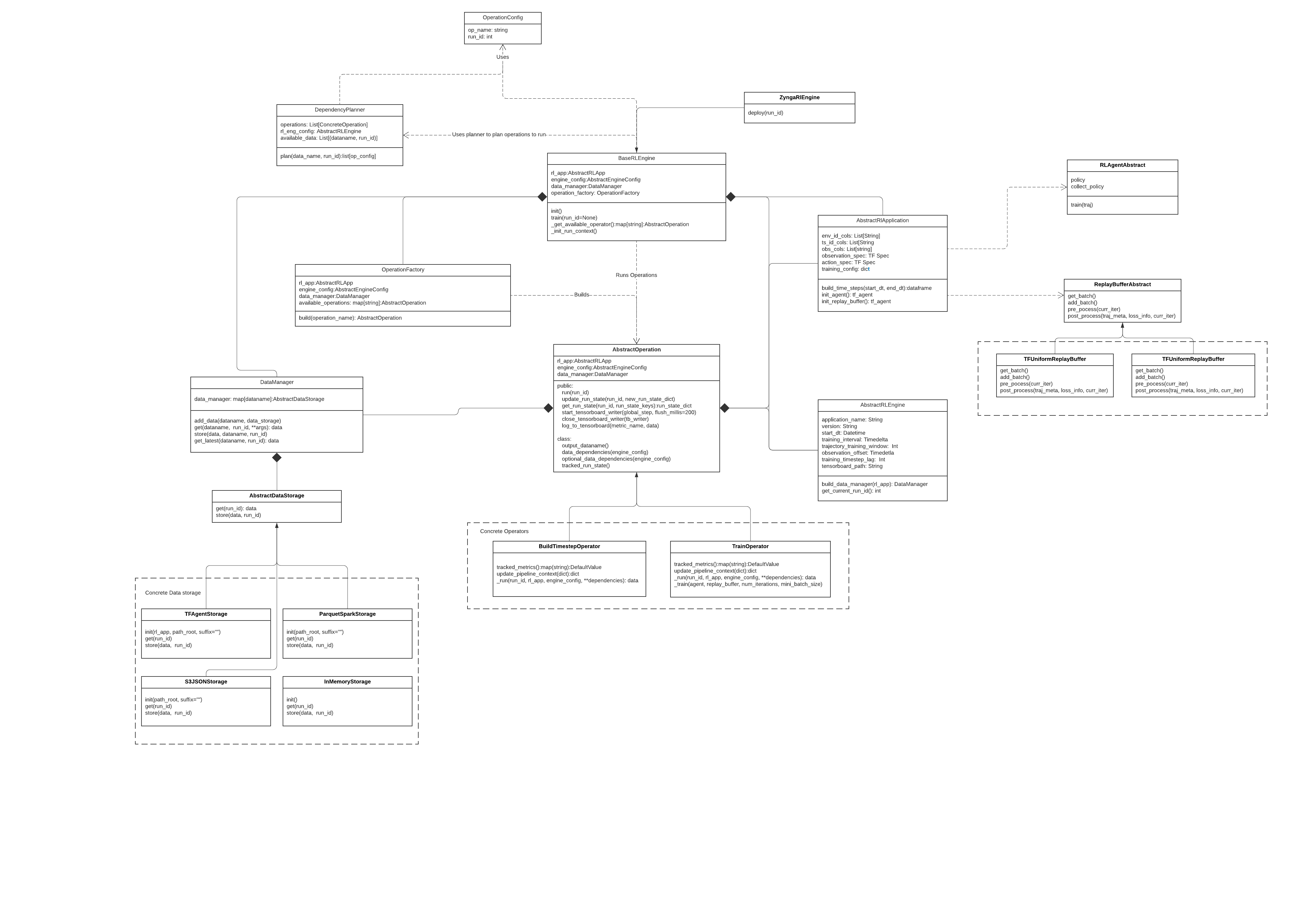RL Bakery makes it easy to build production batch Deep Reinforcement Learning and Contextual Bandits applications that train with offline data. What does that mean? At Zynga, we use this to personalize our games, one example is picking the best time of day to send notifications, based on each user's context. This application "deploys" the Agent once per day, generating a batch of message time Actions for each user. On a daily basis, the historic trajectories of user state, action and rewards are gathered (offline) to train the Agent for the next update. RL Bakery simplifies gathering offline RL data and formatting it at scale for lower level RL algorithm libraries. This talk explains our usages at Zynga and the challenges with production RL. The Deep RL applications created by this library are run in production for millions of users per day.
Patrick Halina, Mehdi Ben Ayed, Peng Zhong, Curren Pangler
RL-Bakery is built on top of TF-Agents as an implementation of the RL Algorithms. There's a lot of other open source libraries that implement RL Algorithms, like Keras RL, Dopamine or SEED. In the future, RL-Bakery could make it easier to support other implementations.
We use OpenAI Gym to test the library with canonical simulated environments, like Cartpole. This isn't used for our production applications.
The library operates at the same level as ReAgent and Ray RLlib. The difference is that RL-Bakery does not implement RL algorithms like PPO or DQN itself, it uses off the shelf implementations from open source libraries. RL-Bakery simply manages the data over time and at scale, then presents the historic data to other libraries that have implementations (we currently only support TF-Agents.) RL-Bakery is also runs seamlessly on existing Spark clusters, without the need to reconfigure Spark.
RL-Bakery uses Spark to manage and transform data, so a Spark cluster (2.4+) is required. We also use Tensorflow 2.0.
Note that we develop and test on our laptops using "local" PySpark clusters provided by the PySpark libraries. You should be able to get this library running locally without much more effort than a Pip install. However, a real Spark cluster is required to run this at scale.
This library helps create RL applications that do batch training on a regular basis over time. Suppose you want to personalize a website with an RL Agent; the Agent chooses optimized values for each user based on their unique context. The Agent can be updated once per day using the batch of offline data collected over the previous 24 hours. RL-Bakery was created for these types of applications, it makes it easier to manage the data over multiple days and combine it into a trajectory format required to update RL Agents.
These applications don't currently benefit from the library:
- Researching/developing new RL algorithms on simulated environments (our library simply utilizes existing off the shelf libraries for executing RL algorithms like DQN).
- If your data is very small, the overhead of using Spark may not be worth it.
- If you're only applying this to simulated environments for training as opposed to some real world environment, lower level algorithm libraries work well for this.
A trained RL Agent is simply a trained Tensorflow model. It can be deployed to a live model service (eg. https://aws.amazon.com/sagemaker/ or Seldon-Core. You can also use the trained model to generate a batch of Actions for a population.
New applications are created by inheriting from the RLApplication class and implementing a few functions. For example, specifying the Agent algorithm to use and how to get data for a specific time period. RL Bakery can then execute the application to construct (State, Action, Reward, Next State) trajectories to train an RL Agent. A trained Agent is basically a deep learning model, which can be served in real time or used to generate batch values for a population of environments.
See rl_bakery/example/cartpole.py for an example with the OpenAI cartpole environment. While that example uses an OpenAI Gym environment, typical applications for RL Bakery will get state from a warehouse.
RL Bakery utilizes Apache Spark to gather and transform data into trajectories of (State, Action, Reward, Next State). RL Bakery does not implement any RL Algorithms like PPO, TD3, DQN, A3C etc. Instead, we wrap the TF-Agents library.
This library is meant to be run on a Spark cluster. If you're testing this locally, you can simply use the PySpark library. This assumes you have Python 3.6+ installed.
- Clone repo:
git clone https://github.com/zynga/rl-bakery.git - cd into repo:
cd rl-bakery - Create a virtual env:
python3 -m venv venv source venv/bin/activate- Install packages:
pip3 install -r requirements.txt - You can run an example app with this command
python -m rl_bakery.example.cartpole
To run this on a Mac, you must install java to run locally with pyspark. https://www.java.com/en/download/mac_download.jsp Add 'export JAVA_HOME=/Library/Internet\ Plug-Ins/JavaAppletPlugin.plugin/Contents/Home' to your .bash_profile
This is coming soon!
Unit tests with this command
python -m unittest discover rl_bakery -p 'test_*.py'
To build a wheel run this command:
python setup.py bdist_wheel
A wheel distribution will then be available in dist directory
